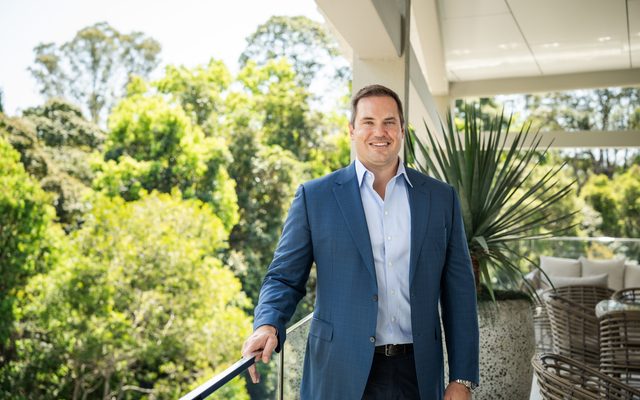This article is from the Australian Property Journal archive
BECTON Property Group's less forgiving new lenders, Goldman Sachs and Fortress Investment Group, have appointed receivers to the renowned 37-year old Melbourne Company.
KordaMentha has been appointed to the holding companies, Mark Korda said it is a “limited receivership” which affects only the shareholders and debt holders but not the day-to-day business operations, which will continue to be run by CEO Matthew Chun.
Creditors, including contractors and the company’s own staff, will continue to be paid.
“It will be business as usual in the development, construction and retirement operations.
“The entity that employs Becton staff is part of the ‘headstock’, and we can confirm that all salaries will continue to be paid and all accrued employee entitlements will be paid as and when they fall due,” Korda said.
One of Becton’s founders, the highly respected Max Beck established the company in 1976 along with Michael Buxton. The company floated on the Australian Securities Exchange in July 2005.
Beck told Property Review that he stopped “having anything to do with the company five years ago,” however was saddened by the news.
“It’s just so tragic that a company that took 30 years to build has been allowed, by others, to collapse in just a few short years.
“My thoughts are with all the wonderful people and chairman that work for Becton today and contributed so much to the company in the past,” Beck said.
“I cannot comment on why Becton has fallen into administration, all I can tell you is that when I ended my role with the company I believe it still had a very strong future, with good projects and a dedicated team.
“This is a very sad day for all Becton employees and shareholders and the property industry more generally because over more than 30 years Becton had created a fantastic reputation for the highest quality development and I cannot understand what has happened to the company since I ceased to be involved with it,” he continued.
Asked whether he would consider buying back the “Becton” brand, Beck said “Probably not. I’ve moved on. My interest is in helping my children, 13 grandchildren and to build up Beck Corp because I hope our Beck family name remains well respected in the property industry,”
Beck said Becton would be alive today, if the company had not taken on “all that debt” five years ago.
Beck was referring to the deal Becton struck in 2007 to buy the assets of Australian Capital Reserve and Estate Properties, which collapsed owing more than $330 million. It was one of a string of high profile property investment companies that went belly up including Fincorp and Westpoint.
Becton outbid all contenders for the assets and took on $584 million worth of debt, including $533 million for the acquisition, $50 million for working capital and $1 million for ‘other costs’.
The ACR and Estate Properties portfolio included nine apartment projects in Sydney and Melbourne; seven undeveloped greenfield sites in New South Wales; and one near complete commercial office development also in NSW, which Becton predicted would return an end value of around $900 million on their $584 million investment.
However the global financial crisis changed the playing field and the high cost of debt began to burden Becton.
In November 2011, Becton traded shares, totalling 95.3% in the company, for the debts owed to BOS International, ACR and noteholders as part of its recapitalisation agreement.
In June last year, the liquidators of ACR have sold their 49.9% stake in Becton to Mariner Corporation, Telopea Capital Partners and Titanium Property Investment. Mariner bought its 20% stake for $1 million.
Five months later, BOSI sold its $126 million corporate debt facility and $116 million
Waterloo project debt facility (both of which mature on 30 June 2015) to the Goldman Sachs and Fortress Investment Group consortium (GSFIG Limited).
Earlier this month, Becton forecast a net operating loss in the range of $2 million and $3 million for the half year ended 31 December 2012. The statutory net loss after tax is expected to be in the range of $10 million to $12 million, due to impairments in the range of $8 million to $10 million relating to the value of Becton’s Retirement Alliance investment.
Becton had warned that the impairments will likely to result in the company not meeting its 31 December 2013 gearing covenant test under its group debt facility with GSFIG Limited. The previous corporate lender, BOSI has been more understanding, and had waived the gearing covenant test.
However the new lender, GSGIF Limited was less forgiving.
Becton’s CEO Matthew Chun told Property Review that Becton owed approximately $200 million to GSGIF and presented detailed proposals to the lender. However, GSFIG chose not to provide the waivers and support requested by the company.
Chun confirmed that the company had a negative equity of approximately $15 million.
“Having exhausted all alternatives available to it, the board therefore has no reasonable basis for believing BPGL will continue to be in a position to pay its debts as and when they fall due. Accordingly, BPGL notified GSFIG of events of default under its debt facility agreements with GSFIG and the board invited GSFIG to appoint receivers and managers to BPGL, Becton Pty Ltd, Becton Group Holdings Pty Ltd and Becton Construction Group Nominees Pty Ltd.
“In the absence of any transaction which could achieve value for shareholders, the board considers that its actions have maximised the expected outcome for other stakeholders of the group, including employees and creditors,” Becton said in a statement.
Chun maintained Becton is still operating and its projects will continue to proceed. Asked whether Becton could potentially trade out of receivership and return to listing, Chun said that decision will be up to the administrators.
Meanwhile major shareholder, Mariner Corporation, is holding onto hope it could recoup its $1 million investment. Mariner has 1,504,629 ordinary shares and 1,567,364 options in the company.
Mariner said a statement that it will take all steps necessary to ensure that it maximises any returns for Mariner out of the Becton receivership.
Property Review



